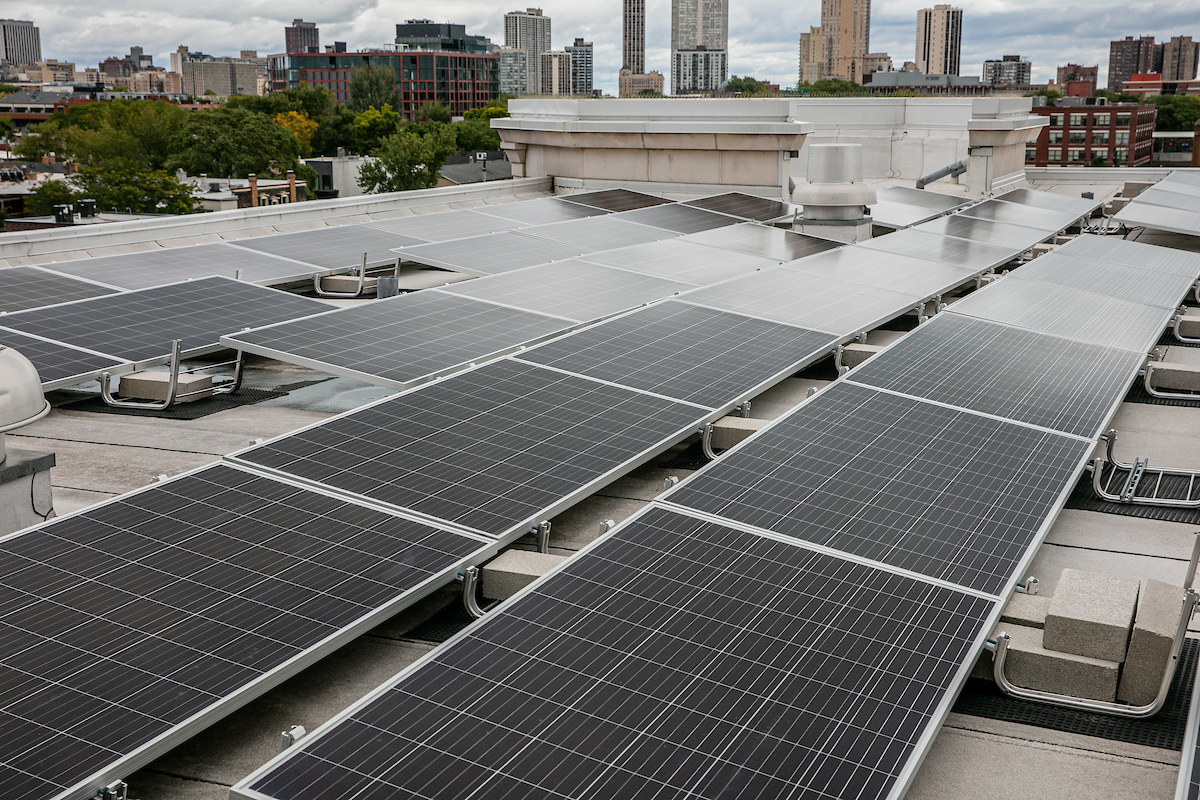 The effects of DePaul's solar panels prevent an annual average of 75.5 metric tons of carbon dioxide from entering the atmosphere, which is about the equivalent of planting more than 4,000 trees a year. (DePaul University/Randall Spriggs)
The effects of DePaul's solar panels prevent an annual average of 75.5 metric tons of carbon dioxide from entering the atmosphere, which is about the equivalent of planting more than 4,000 trees a year. (DePaul University/Randall Spriggs) From wind turbines to natural weed-killers, Facility Operations works hard to keep DePaul green. The university has recently expanded two projects on its long list of sustainability efforts: solar panels and composting.
The university added 240 solar panels on top of Lincoln Park’s Clifton-Fullerton Hall and entered a collaboration with Lakeshore Recycling Services, bringing composting to the Loop Campus. Facility Operations expects both projects to bring cost-saving benefits in addition to an even greener campus.
The 240 solar panels added onto Clifton-Fullerton are not the first panels on the Lincoln Park Campus. In summer 2018, DePaul installed 289 panels on the roofs of McGowan North and 1150 Fullerton.
“These projects mean long-term electrical savings and reduce our carbon footprint,” says Frank Matijevic, the project manager for the solar installations. “We’re highly competitive with other universities in terms of solar energy. DePaul now purchases about 40 percent of energy from renewable resources.”
The effects of the solar panels prevent an annual average of 75.5 metric tons of carbon dioxide from entering the atmosphere, which is about the equivalent of planting more than 4,000 trees a year. A real-time viewing of the energy production and CO2 emission savings is
available online.
“We intend to move forward with more solar panels over the next few years,” Matijevic says.
Along with the new solar panels, DePaul also implemented a new waste hauling and recycling services contract this summer with Lakeshore Recycling Services. The company does not own or operate landfills, which gives the company more incentive to sell recyclables.
As part of this deal with LRS, the university also brought composting to the Loop Campus DePaul Center’s cafeteria for the first time. Trained kitchen staff will separate foreign objects, such as plastics and other non-organic items, from food products before placing them into designated bins for LRS. The composting program began this fall.
“LRS is unique in the industry,” says Rich Wiltse, director of Facility Operations. “We’re happy to expand our composting program from the LPC to the Loop. We also feel the company is going to be as creative as possible to sell our recyclables into the market, rather than dumping them in a landfill.”